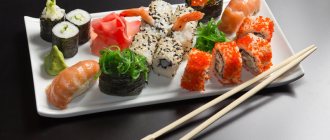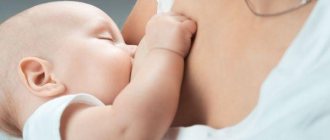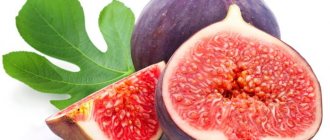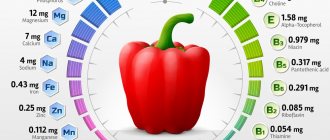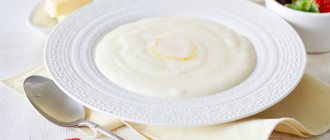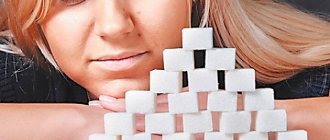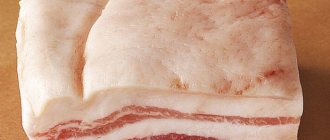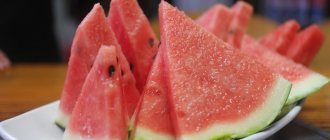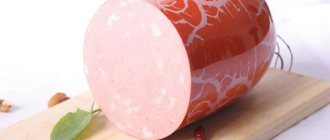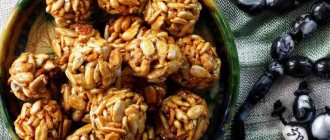Seafood has gained a strong position in the domestic market due to high demand - today, a variety of seafood products are moving from exotic to the category of everyday food. This is facilitated by the taste of seafood and its beneficial properties.
If the expectant mother is accustomed to regularly eating shrimp, squid, mussels and other representatives of the deep sea, after the birth of the child it is difficult for her to give up her usual diet, but at the same time there are concerns about whether seafood will harm the baby during breastfeeding. It is important to understand the benefits and harm that dishes with marine life on his mother’s menu can cause to the health of a newborn.
The benefits of seafood
Seafood usually includes everything edible that is obtained from the waters of the world's oceans, excluding mammals and vertebrates. Our usual list of seafood includes lobsters and crabs, squid, shrimp, octopus, and various shellfish. All seafood has one thing in common - it is an easily digestible protein, a low-calorie dietary product that contains a lot of iodine and phosphorus, which are necessary for the health of adults and for the proper development of children.
A common property of seafood is a high risk of allergies in a child, so even the safest seafood needs to be introduced into the mother’s menu gradually, monitoring the baby’s well-being. Let's take a closer look at the properties of the most popular seafood, since they differ in their effect on the human body.
Shrimps
Shrimp are members of the crustacean family. Their meat is rich in micro- and macroelements, amino acids, which:
- help boost immunity;
- improve the condition of hair, skin and nails;
- promote joint restoration;
- normalize the functioning of the thyroid gland;
- strengthen the heart muscle.
Regular consumption of shrimp meat will help a woman during lactation to regain strength after pregnancy and enrich breast milk with substances important for the proper development of the baby.
Despite all the beneficial properties of the product, the question of whether a nursing mother can include shrimp in her diet remains open. Today there are three types of shrimp on sale:
- Northern deep-sea. The safest option, since in fishing areas the ocean is less polluted by waste.
- Southern warm-water fish, fishing is carried out in coastal waters. This product is cheaper, but the risk of containing heavy metals in meat is significantly higher.
- Freshwater. They are bred in pools on special farms. To speed up the growth of shrimp and to protect them from diseases, hormones and antibiotics are added to their feed. Such a product not only contains fewer nutrients, but can also cause serious harm to the health of mother and baby.
To avoid food poisoning, make sure the product is fresh before enjoying shrimp. It is not recommended to buy sushi and rolls with these crustaceans, since the ingredients included in the dish and hot seasonings can mask the staleness of the shrimp. If it is possible to purchase a high-quality product, and the baby does not have an allergic reaction to it, it is recommended to add up to 100 grams of heat-treated shrimp to the menu 1-2 times a week.
Benefits and harms of breastfeeding
Cabbage is made from brown algae - kelp, caught, washed to remove sand, sorted and dried. The finished product has a glossy surface, rich composition and healing properties that are necessary for a nursing mother.
- Vitamins:
- A – is responsible for the condition of the skin, hair and nails, protects the mucous membranes and cornea of the eyes.
- E – is necessary for the production of prolactin, a hormone that affects the breastfeeding process and the amount of milk.
- K – is responsible for the mother’s blood clotting processes.
- C – provides antibacterial protection, as it activates the immune reactions of the mother’s body.
- Group B (B1, B2, B3, B5, B6, B12) – has a beneficial effect on the functions of the central nervous system.
- D - participates in the formation of the skeleton, strengthens bones, improves vision. It prevents rickets in newborns.
- Microelements included:
- Iodine is the main element of seaweed, contained in large quantities - up to 220 mcg per 100 g. Participates in the synthesis of thyroid hormones, has a positive effect on mental and physical activity, and relieves depression.
- Potassium – affects the functions of the cardiovascular system, normalizes kidney function.
- Iron – maintains proper blood composition during breastfeeding. With a deficiency, anemia develops, which causes weakness, fatigue, decreased lactation, and pale skin.
- Magnesium – increases the muscle activity of the newborn.
- Sodium – maintains water-salt balance in cells.
- Phosphorus – strengthens bones and teeth, ensures the baby’s higher nervous activity – reflexes, logical skills.
- Polysaccharides - lower cholesterol, prevent the formation of blood clots, regulate water-salt balance, destroy cancer cells.
- Antioxidant complex – protects cells from free radicals.
- Alginates have an antitumor effect and remove toxic substances.
Laminaria is a dietary product containing a minimum of calories - 5.4 kcal per 100 g. Satisfies hunger for 2-3 hours and reduces appetite, which promotes weight loss after childbirth.
Bivalves
Among the edible bivalves, the most popular are oysters, mussels and scallops. They contain a wide range of vitamins and minerals, useful microelements, including iron, selenium and calcium.
Regular consumption of shellfish will help:
- improve the functioning of the cardiovascular system;
- stimulate the functioning of the gastrointestinal tract;
- prevent the appearance and development of liver cirrhosis;
- increase hematopoietic activity;
- remove toxins from the body;
- lower the level of dangerous cholesterol in the blood;
- reduce the risk of developing cancer.
In most regions of the country, shellfish are sold frozen, shelled and peeled, as well as canned in oil and marinated. To avoid severe poisoning of mother and baby, preference should be given to a frozen product - after defrosting, you can check the freshness of the shellfish. In addition, preservatives and flavor enhancers are harmful to a child’s growing body.
Fresh mussels, scallops and oysters smell of the sea, the shellfish have an elastic structure and a clean, light color. An unpleasant odor indicates that the product has not been stored properly and is dangerous to eat. Shellfish are prepared as an independent dish or added to salads. Nursing mothers are advised to use only heat-treated mussels, oysters and scallops. This is safer and lowers the risk of allergies in the baby.
If you are trying any shellfish for the first time in your life, you should not do it during breastfeeding, since it is unknown how the body of the nursing mother herself will react. It is advisable to postpone introduction to exotic products until after lactation.
Seafood on a nursing mother's menu
During breastfeeding, many controversial issues arise about what a nursing mother can and cannot eat. And if everything is more or less clear with regard to familiar products, then it can be more difficult to understand with exotic ones. Seafood can also be included among them.
Is it possible for breastfeeding women to eat seafood?
Let's first figure out what are the benefits of seafood ? Seafood and sea fish have high nutritional value due to high quality proteins, as well as high levels of omega-3 and omega-6 fatty acids in some types of fish. Particularly useful in this regard are sardines, salmon, rainbow trout, salmon, tuna, herring, and mackerel.
Omega acids can work real miracles - they improve the condition of the heart and blood vessels, stabilize blood pressure and normalize metabolism. In the diet of a nursing mother, these products can help combat vitamin and mineral deficiency, which often occurs during breastfeeding. They supply the body with much-needed iodine and many other microelements.
In addition, seafood is rich in potassium, magnesium and especially phosphorus and calcium. In addition to this, seafood and certain breeds of sea fish also contain fluoride, which is usually not enough in the body of a nursing mother.
So is it possible for nursing mothers to eat seafood ? Despite all the apparent benefits of nutrients that fish and seafood contain, they can also be harmful. First of all, many of our seas are polluted with salts of heavy metals (for example, mercury), and seafood “loves” to accumulate them. This has been determined in many studies conducted by scientists. In most cases, small amounts of heavy metals are found in marine fish and seafood, which are considered harmless. But some types of fish, especially those living in coastal seas, can accumulate harmful substances in toxic doses. Getting from the mother’s digestive system into breast milk, they can enter the baby’s body and negatively affect his delicate and sensitive nervous system.
Seafood for nursing
According to modern recommendations of leading nutrition association experts and data from the World Health Organization, nursing mothers and children should avoid eating meat from fish that live in the seas and oceans for a long time - sharks, swordfish, king mackerel. They have the unpleasant feature of accumulating many toxic substances. It is clear that in ordinary life we rarely encounter such delicacies, but if you decide to go to a seaside resort with your family, then with the abundance of various local restaurants and cafes, where such dishes are usually widely represented on the menu, such a temptation may well arise.
Your task is to resist and not give in to temptation by choosing a less controversial treat. All other types of fish and smaller seafood can be eaten. But it is worth remembering that the total amount of seafood for nursing per week should not exceed 350 g. Sea creatures such as pollock and salmon, light tuna and shrimp can be relatively safe for nursing mothers. These products can be consumed fresh, but canned products contain too many food “chemicals”, salt, spices, irritants, and should be discarded.
Allergy to seafood
There is a widespread belief that fish and seafood are highly allergenic. However, compared to cow's milk protein allergy, seafood allergy is much less common. Fish and seafood can only become dangerous if the mother is allergic to them. After all, then the baby may have an allergic reaction to them, which is quite often inherited. In other cases, seafood can be eaten like any other food you are familiar with. As usual, the principle of gradualness is important here - you need to introduce them into the menu slowly, starting with very small portions and monitoring whether the baby has any adverse manifestations (stool disorders, skin rashes, etc.) over the course of days. It would not be superfluous to recommend recording data about the foods consumed and the baby’s reaction to them in a food diary.
- The healthiest and safest for lactating women are cod, pollock, hake and pike perch.
- Fatty fish (herring, flounder, etc.) can be consumed no more than once a week.
- But you should avoid mackerel completely - on the scale of allergenicity it is in the forefront.
- Among seafood, crayfish, lobster and oysters are considered especially allergenic. Therefore, they should be one of the very last to be introduced into your menu.
- In addition, you should not eat seafood raw - all seafood must be thermally processed.
Thus, if you follow simple rules of safety and moderation in nutrition, you can completely afford to eat fish and seafood during the period of breastfeeding.
Is it possible to feed eggs?
Fish caviar, like the fish itself, is very healthy and valuable as a food product; it contains complete protein and unsaturated fats, a full range of vitamins and minerals that are necessary for the nutrition of any person, including a nursing woman.
Caviar, according to many nutritionists, can be safely consumed during breastfeeding, provided that it is of high quality or has undergone a pasteurization process. This is due to the fact that unprocessed caviar can be dangerous in terms of infection with listeriosis, intestinal infections or helminths. By the way, the same danger awaits those who like to eat sushi (due to raw fish and seafood, caviar). Although there is no convincing evidence that listeria can pass into breast milk, it is still better to avoid eating raw fish, including in the form of sushi, when breastfeeding.
Cephalopods
Cephalopods include squids and octopuses. They are highly valued as a source of protein, minerals and trace elements, vitamins and polyunsaturated fatty acids. To preserve the beneficial substances as much as possible, the product should not be re-frozen. Long-term heat treatment also harms it.
The carcass and tentacles of squids are used as food. Squids available for sale:
- frozen (unpeeled and peeled);
- canned and pickled;
- dried.
Canned, dried and pickled squid contain an excess amount of salt, which retains water in the body, which is harmful for a nursing woman. Spices and preservatives are dangerous for babies. It is recommended to prepare dishes from frozen product, making sure to ensure its freshness after defrosting. When feeding a baby with breast milk during the first months of life, the mother should avoid fried foods, so squid is boiled and added to salads, stewed or baked with vegetables.
Octopuses are an exotic product on our shelves. Usually small specimens go on sale as part of frozen seafood cocktails. Larger octopuses sold by the carcass must be carefully processed before cooking to remove mucus, ink residues, and specific odors. Compared to squid, octopus meat is tougher.
Large crustaceans
This category includes sea crabs, lobsters, and lobsters. Lobsters and spiny lobsters (they differ in body shape) are also called lobsters (from the English lobster - lobster). Meat from the claws, tail, and under the shell is used for food. It has no carbohydrates, little fat and a lot of protein.
The product is consumed as an independent dish in boiled form (nursing mothers should limit the use of spices and salt), and added to salads. It is undesirable to include canned crab meat in the diet due to the high content of spices and salt, and the presence of preservatives.
conclusions
Seafood during breastfeeding will benefit mother and baby if you carefully choose seafood. What seafood can be included in your daily diet? Exotic types of seafood, to which the mother’s body is not accustomed, should be excluded, as well as freshwater shrimp grown using hormones and antibiotics.
It is allowed to start introducing seafood into the menu only after the baby reaches three months of age.
It is allowed to consume seafood 4-8 times a month, eating no more than 200 grams of product at a time. If mother and baby are not allergic to seafood, the answer to the question of whether seafood can be added to the diet of a nursing woman is yes. Subscribe to our VKontakte group
Harmful effects of seaweed while breastfeeding
Excessive consumption of seaweed can lead to negative consequences for the health of a nursing mother.
- Excess iodine (hyperthyroidism) - negatively affects the functioning of the thyroid gland and occurs when abused.
- Poisoning, disruptions in the gastrointestinal tract - occur after purchasing a low-quality product. Therefore, check the integrity of the packaging, the absence of condensation, compliance with expiration dates and storage rules. The cabbage should be clean, without plaque.
- Exacerbation of gastrointestinal and kidney diseases, the appearance of allergic dermatitis, hemorrhoids - if you eat cabbage, which contains a large number of spices, marinades, preservatives and flavor enhancers. They irritate the mucous membrane of the stomach and oral cavity, contribute to the appearance of inflammation and stones in the urinary system, cause allergies and constipation.
In order not to reduce the benefits of the product during guarding to a minimum, you need to know the daily dose, which is 150 g. 3 times a week.
